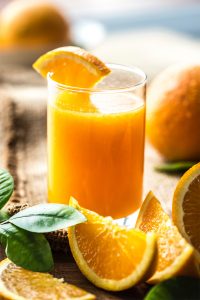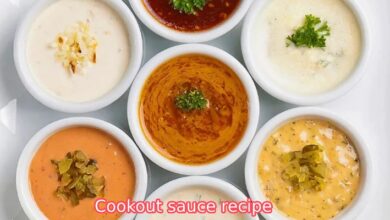How much juice in one orange
One average-sized orange typically yields about 1/2 cup (120 ml) of juice. However, the amount of juice in an orange can vary depending on its size, ripeness, and juiciness. Larger oranges may contain more juice, while smaller ones may have less. Additionally, the juiciness of an orange can be influenced by factors such as the variety of the fruit and the growing conditions. To extract the maximum amount of juice from an orange, it is recommended to roll it on a hard surface before juicing or to use a citrus juicer.
How much juice in one orange
The juice content of one orange typically ranges from 4 to 5 tablespoons or approximately 1/4 to 1/3 cups. Therefore, it takes about three oranges to yield one cup of fresh orange juice. It is worth mentioning that these measurements apply to regular oranges.
Can you drink too much 100% orange juice?

Excessive consumption of orange juice, which is high in fructose and acidic in nature, can have harmful effects on the body. The surplus fiber content can result in digestive issues such as abdominal cramps and diarrhea. Additionally, the acidic nature of orange juice can lead to severe heartburns. Other potential problems associated with excessive intake include nausea, vomiting, headaches, bloating, and insomnia.
How many oranges make 1 litre of juice?
Order by 12h00 for same day shipment. Enjoy FREE standard delivery on all orders. Prices exclude VAT and will be added at checkout.
Looking for something specific? Browse our products and add them to your cart. Earn rewards and download helpful resources. Find answers to frequently asked questions. Explore our selection of tape pens and read our informative blogs.
Already have an account? Login to access your account and make purchases.
Share our website with your friends and colleagues on Facebook, Twitter, and LinkedIn.
Written by David Silver on March 27, 2017.
How many oranges does it take to make 150ml of juice?

The production of 100% fruit juice is closely regulated by the European Directive4. This regulation ensures that no additional substances such as sugar, preservatives, colorings, stabilizers, flavorings, or even water can be added or removed from the juice. Therefore, when a product is labeled as 100% orange juice, it means that only pure orange juice made from whole oranges is present. It is important to note that contrary to popular belief, a 150ml glass of 100% orange juice contains the juice of only 12 medium-sized oranges5. The vitamins, minerals, water content, and natural sugars in the juice accurately reflect the composition of the original fruits used in its production.
How much juice is in 2 oranges?
xxxxx
When it comes to recipes, many call for the juice or zest of an orange. But have you ever wondered how much juice and zest you can actually get from one orange?
To find out, we conducted a test using medium-sized oranges weighing approximately 47 ounces. Based on our findings, you can expect to get around 3 to 4 medium-sized oranges in a pound.
On average, a medium orange contains about 2 ounces or 4 tablespoons of juice. Additionally, it typically has 10 fruit sections. In terms of zest, you can find about 2 to 3 tablespoons on one orange.
For more information and conversions, feel free to explore our custom conversion section.
Is drinking 100% fruit juice the same as eating fruit?

Drinking 100 percent fruit juice may seem like a healthy choice, but it falls short compared to consuming whole fresh fruit. Recent studies reveal that consuming just one glass of 100 percent fruit juice daily can lead to gaining nearly half a pound in three years. On the other hand, increasing your intake of whole fruit by one serving per day can result in approximately a pound of weight loss over the same period.
So, why is eating whole fruit more beneficial than drinking juice? Let’s examine how fruit juice impacts your body and how it differs from consuming whole fruit.
How much juice does 1kg of oranges make?

To determine if it is economical to squeeze your own juice, the cost of purchasing the fruit is a crucial factor. Here’s how it worked out for me:
I obtained 20kg of fruit, which yielded 113kg of juice. This amount of juice is equivalent to 113 liters. Since I spent $40 on those 20kg of oranges, it also bought me 113 liters of juice. Therefore, the cost of 1 liter of juice is $40/113L, which is approximately $0.35 per liter.
Comparatively, a typical 2L carton of fresh juice in the supermarket costs around $4.50. So, to make fresh squeezed juice economical, you would want to pay no more than $1 per kg for juicing oranges. With the yields mentioned above, the juice would cost about $3.60 for a 2L carton.
However, from an economic standpoint, it doesn’t stack up for me at $2 per kg. While the taste is pleasant, it’s not significant enough to justify paying a 50% premium and spending 45 minutes every couple of days preparing the oranges for juicing. Additionally, there are other benefits to consider, such as health and supporting local producers, but this experiment focused solely on the economics.
This experiment is not meant to criticize Fresh Citrus Direct or any other producer. There are various factors to consider when choosing a produce supplier, including quality, supporting local producers, and organic options. For these reasons, I will continue to support Fresh Citrus Direct and similar industries, but I will stick to buying fruit for eating.
The key takeaway is that if you’re considering squeezing your own oranges and your fruit yields are similar to what I experienced, you can expect to get approximately 565ml of juice per kg of oranges. Use this information to determine if it is cost-effective for you.
How many oranges for 250ml?
Who cares? That’s a good question. The reason it matters is because it is easy to consume a large amount of sugar without realizing it when drinking orange juice. Each cup of orange juice contains a significant amount of sugar, and most people wouldn’t eat more than one whole orange at a time. It also takes time to prepare oranges for juicing.
To estimate how many oranges it takes to make a glass of orange juice, we can look at the sugar content. One medium-sized orange contains approximately 1225g of total sugar, while one cup of raw orange juice contains about 22g of total sugar. By dividing 22g by 1225, we find that it takes just under 2 medium oranges to make 1 cup of orange juice.
In terms of sugar content, this translates to 55 teaspoons of sugar per cup of orange juice. The American Heart Association has set recommendations for daily added sugar intake, with men advised to limit their intake to 9 teaspoons per day, women to 6 teaspoons per day, and children and adolescents to 36 teaspoons per day. Infants, toddlers, and preschoolers should aim for as little added sugar as possible, while older children should aim for a maximum of 3 teaspoons per day.
After drinking just one cup of orange juice, most kids have already exceeded their daily limit of added sugar. Adolescents and women are at their allowance limit, and men have consumed more than half of their intake allowance. This is without considering other sources of added sugar in their diet.
While some may argue that orange juice is not considered added sugar because it is natural, the high sugar content in the drink outweighs any potential nutrient benefits. Additionally, the juicing process removes the fiber from the oranges, and the fructose in the juice is metabolized similarly to alcohol in the liver. This can lead to weight gain, increased fat production, and potential issues with insulin and blood sugar levels.
It’s important to note that these reactions can occur with any sweetened beverages, such as soda, fruit drinks, and sports drinks, as many of them use high fructose corn syrup as a sweetener.
My suggestion is to consume sugar as part of a balanced meal. This way, the fiber, protein, and fat in the meal will help you feel satisfied and prevent excessive sugar consumption. Drinking sugar bypasses our fullness cues, leading to higher sugar intake compared to eating it.
When you do choose to eat sugar, do so mindfully. Take the time to savor the taste and texture of the food, and avoid eating while distracted. This will help prevent overeating and ensure that you feel satisfied.
If you have any questions, feel free to reach out to me at [email protected].
Wishing you the best of health,
Eliana
August 17, 2016
Conclusion
How much juice is in 2 oranges?
To determine how much juice is in 2 oranges, we need to consider the size and juiciness of the oranges. On average, a medium-sized orange contains about 100ml of juice. Therefore, if we assume that both oranges are of average size and juiciness, we can estimate that 2 oranges would yield approximately 200ml of juice.
How many oranges for 250ml?
If we know that 2 oranges produce around 200ml of juice, we can calculate how many oranges would be needed to obtain 250ml of juice. Since 2 oranges yield 200ml, we can infer that each orange produces 100ml of juice. Therefore, to obtain 250ml of juice, we would need 2.5 oranges.
How many oranges does it take to make 150ml of juice?
Following the same logic, if each orange produces 100ml of juice, we can calculate how many oranges would be required to make 150ml of juice. Since 2 oranges yield 200ml of juice, we can estimate that 1.5 oranges would produce 150ml of juice.
Is drinking 100% fruit juice the same as eating fruit?
While 100% fruit juice does contain the natural sugars and some nutrients found in whole fruit, it is not the same as eating the whole fruit. When fruit is juiced, the fiber content is often reduced or removed entirely. Fiber plays a crucial role in digestion and helps regulate blood sugar levels. Additionally, whole fruits provide more satiety and chewing satisfaction compared to drinking juice. Therefore, it is generally recommended to consume whole fruits rather than relying solely on fruit juice for nutritional benefits.
How much juice does 1kg of oranges make?
The amount of juice obtained from 1kg of oranges can vary depending on the size and juiciness of the fruit. On average, 1kg of oranges can yield approximately 800-900ml of juice. However, this can vary, and factors such as the variety of oranges and the juicing method used can also impact the amount of juice obtained.
Can you drink too much 100% orange juice?
While 100% orange juice can be a healthy addition to a balanced diet, it is possible to consume too much. Orange juice, like any other fruit juice, contains natural sugars and calories. Excessive consumption of orange juice can lead to an increased intake of calories and sugar, which may contribute to weight gain and other health issues. It is important to consume orange juice in moderation and consider it as part of an overall healthy eating pattern. It is also worth noting that individuals with certain medical conditions, such as diabetes, should be cautious about their intake of fruit juice due to its impact on blood sugar levels.
In conclusion, the amount of juice obtained from oranges can vary depending on factors such as size, juiciness, and juicing method. On average, a medium-sized orange produces around 100ml of juice. Therefore, 2 oranges would yield approximately 200ml of juice. To obtain 250ml of juice, 2.5 oranges would be needed. Similarly, 1.5 oranges would produce 150ml of juice. While 100% fruit juice contains some nutrients found in whole fruit, it is not a substitute for consuming whole fruits due to the reduced fiber content. On average, 1kg of oranges can yield around 800-900ml of juice. Lastly, while orange juice can be a healthy choice, it should be consumed in moderation to avoid excessive intake of calories and sugar.
Sources Link
https://craftprice.co.uk/blogs/kitchen/juicing-economics-orange-juice
https://www.howmuchisin.com/produce_converters/orange
https://www.eatdifferentrd.com/blog/2016/8/12/how-many-oranges-does-it-take-to-make-a-cup-of-oj
https://nutrition2me.com/resource-centre/cn-extra/whats-really-in-your-glass-of-orange-juice/
https://www.stanfordchildrens.org/en/topic/default?id=fruit-vs-fruit-juice-whats-the-difference-197-30060
https://www.themusinggreg.com/sustainable-living/the-economics-of-squeezing-your-own-orange-juice/
https://www.lybrate.com/topic/benefits-of-orange-juice-and-its-side-effects
You are watching: How much juice in one orange


